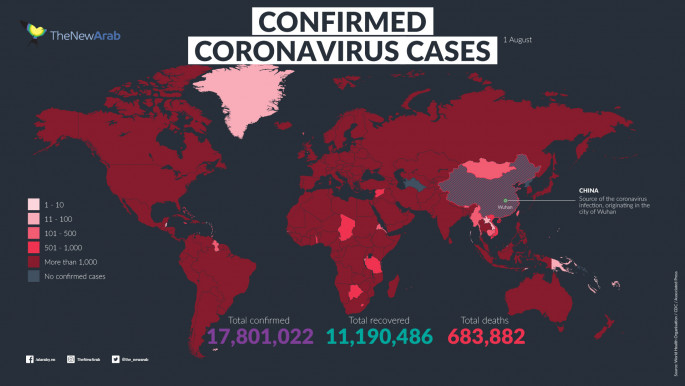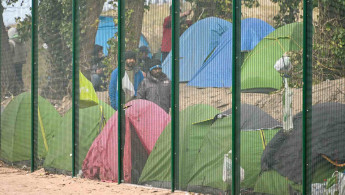Half of Calais migrants could catch coronavirus in coming month, charity warns
The coronavirus has begun to spread among refugees sheltering in makeshift camps in northern France and infections will rise "exponentially" without urgent action from the authorities, a Calais-based refugee charity has warned.
Care4Calais, one of the last remaining organisations providing emergency services to more than 1,000 refugees and migrants based around the city, said that last week, the number of people showing symptoms of the new coronavirus jumped from three to nine in just three days.
"Although the numbers are still low, there is no way to contain the spread in these terrible conditions," Care4Calais founder Clare Moseley told according to a report in The Guardian.
The makeshift camps lack proper sanitation and running water, and their scarce food supplies have been further depleted by the lockdown. Moseley added that the camp conditions do not allow migrants and refugees to implement prevention measures like social distancing.
Without these measures, "the spread of the disease could be exponential and we estimate that half the population could be infected within four weeks", she added.
 |
|
| Click to enlarge |
Mosely called on French authorities to urgently take action.
Last week, French police began moving migrants from the makeshift camps to temporary housing, as part of nationwide confinement measures to combat the virus outbreak.
However, the transfers have so far been voluntary, and only 400 beds have been made available, although authorities say they are trying to source more.
Aid workers on Friday examined people moving into accommodation for Covid-19 symptoms, with authorities confirming that two of those tested were positive for the virus and were placed in isolation.
Officials said that 20 quarantine beds had been made available for those confirmed to have the virus.
France’s nationwide stay-at-home orders and fears of infections have sharply reduced the number of volunteers working with migrants, and state food provision for refugees has dropped by 50 percent.
Follow us on Facebook, Twitter and Instagram to stay connected





 Follow the Middle East's top stories in English at The New Arab on Google News
Follow the Middle East's top stories in English at The New Arab on Google News


